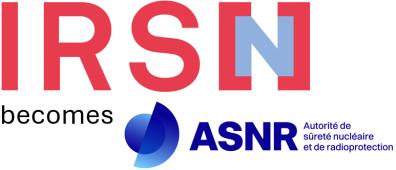Nuclear safety: IRSN will rely on new technologies for a better use of operating experience feedback
IRSN is upgrading its operating experience feedback (OPEX) system to improve its application in the field of expertise. Several experiments have already demonstrated the interest for implementing business intelligence, machine learning and cognitive search technologies. To extract knowledge and provide insights through data science, the Institute also granted access to “Sapide”, its database of significant events reported by the operators, for the magazine “Contexte”.
Like any risk activity, the nuclear industry relies on experience feedback to improve the safety of nuclear facilities. Any deficiency is analyzed to tackle the deficiency’s source and the past analyses are also used over time to learn about new topics. At IRSN, the Sapide’s database capitalizes on the experience feedback regarding French pressurized-water reactors (PWRs) since 1993. It contains 26,500 events, reported by EDF since the commissioning of the first two 900 MWe French PWRs in Fessenheim (Alsace) in 1979.
Sapide has evolved to track the changing technological and regulatory environments. At a very early stage, the Institute digitalized and categorized the oldest documents to facilitate the retrieval of information by experts and to contribute to the assessment of risk control in terms of safety, security, radiation protection and environment protection.
However, data processing, which relies on pre-established categories, restricts application of the database, in particular the identification of new subjects to investigate such as changes of both processes and organizations. "What is counted in the historical approaches of the treatment of experience feedback is not always interpretable in terms of risk control", summarizes Karine Herviou, director of Safety approaches, Systems and New Reactors at IRSN.
In the view of all these, IRSN launched the OPEX project, which would be rolled out gradually over the next 3 years. The query in Sapide had to be improved to help the experts exerts the most from the data in order to render more relevant opinions. The range of opinions could vary from the analysis of an event, a trend, a specific theme to an overall assessment of the risk management by various French operators.
According to Hervé Bodineau, the manager of the PWR safety department at IRSN, "raw data can be used to identify new subjects and refine knowledge on existing subject". This scheme has been tested to prepare the commissioning tests of the EPR reactor in Flamanville. As a part of that experiment, an assessment was carried out by exploiting the data from previous commissioning tests in the 1980s and 1990s.
This new scheme requires methods and tools that can make data more meaningful and adapt its restitution according to the uses. That should also allow a transversal analysis, which combines different disciplines (safety, human and environmental radiation protection), different types of facilities, technical and organizational aspects involved in the occurrence of events. "One of the expectations of the OPEX project is to be able to learn more from the significant events reported by EDF" illustrates Hervé Bodineau.
The OPEX project is exploring several technological opportunities, through three proofs of concept (POC):
- In terms of business intelligence, the visualization of data and analytical elements for decision support;
- Automatic language processing and machine learning in support of event analysis;
- The use of search engines implementing principles of cognitive search.
The POCs were used to establish the architecture of the OPEX project to help the experts to identify relevant lessons for risk control. "To go further, we must know how to complete and evolve our practices on experience feedback, says Karine Herviou. It is necessary to complete the descriptive approach with analytical elements, specific to experts work and focused on the uses".
Data Science: Another discipline to enhance the expertise
Does the age of a reactor have an influence on its safety? Is a surge in events reported by EDF a sign of premature ageing of a reactor? For Context magazine, which has just devoted an article to the question, the answer is rather negative. To get to this point, the magazine analyzed in statistical and mathematical form the Sapide database. This data journalism report was conducted in parallel with the OPEX project.
"The database is not public. Therefore, IRSN has decided to partially open it after informing the operators", says Hervé Bodineau. This collaboration has confirmed Sapide's robustness and the potential of data science to carry out expert missions.
Thus, it is possible to reconsider old data to answer new questions. Statistical processing may also allow, under certain conditions, the identification of weak signals to be investigated by the operators.
